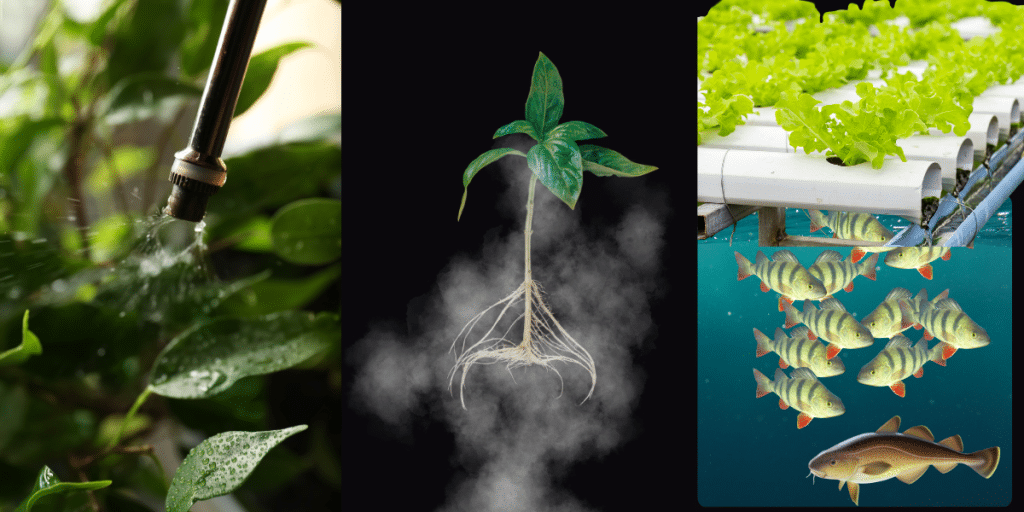Introduction to Sustainable Agriculture

Welcome to the ever-evolving world of sustainable agriculture, a practice that intertwines the nurturing of our lands with the nurturing of our communities and future generations. This cornerstone article seeks to unfold the intricate tapestry of sustainable agriculture – a concept that goes beyond mere farming techniques to encompass a holistic approach to food production and land stewardship.
Definition and Overview: At its core, sustainable agriculture is about meeting today’s food and textile needs without compromising the ability of future generations to meet their own. It integrates three main goals: environmental health, economic profitability, and social and economic equity.
History and Evolution: The roots of sustainable agriculture stretch back centuries but have gained significant momentum in recent decades. Driven by a growing awareness of the environmental impact of conventional farming and the challenges of climate change, sustainable agriculture has evolved from traditional practices to incorporate modern innovations.
As we delve deeper into sustainable agriculture, we will explore its principles, practices, challenges, and the bright future it promises. This journey will not only inform but also inspire action towards more sustainable practices in our own lives and communities.
Understanding the Urgency
In a world where environmental concerns are no longer distant warnings but present realities, understanding and embracing sustainable agriculture becomes not just important, but essential. But why should we care? The answer lies in the alarming trajectory our planet is on.
Climate scientists have been increasingly vocal about the narrowing window of opportunity we have to prevent catastrophic climate change. If current trends continue unchecked, we are looking at a future where, within this century, parts of the planet could become too hot to sustain human life. This isn't just about warmer summers or milder winters; it's about extreme weather events, food and water scarcity, and the survival of the ecosystems we rely on.
Sustainable agriculture offers a path forward – a way to produce our food and meet our needs without exacerbating these global challenges. It's about taking responsibility for the health of our planet and ensuring that we leave a livable, thriving world for future generations. The choices we make in how we grow our food and manage our land have profound implications, not just for us, but for every living thing on Earth.
As we delve deeper into sustainable agriculture, let's keep in mind the gravity of our situation and the critical role that sustainable practices play in shaping a better future.
Principles of Sustainable Agriculture
Sustainable agriculture is grounded in a set of principles that guide its practices and objectives. These principles ensure that agricultural methods are environmentally sound, economically viable, and socially responsible.
Environmental Stewardship: This principle emphasizes the importance of preserving natural resources and biodiversity for future generations. Practices include soil conservation, water management, and reducing the use of harmful chemicals. The goal is to maintain ecological balance, ensuring that farming activities contribute positively to the environment.
Economic Viability: For any agricultural practice to be sustainable, it must be economically feasible for farmers. This principle focuses on creating a system where farmers can achieve a fair and reliable income, ensuring the longevity and resilience of their farming operations. It involves fair trade practices, localizing food systems, and encouraging community-supported agriculture.
Social and Community Responsibility: Sustainable agriculture recognizes the role of farming in society and its impact on communities. It advocates for fair labor practices, community engagement, and access to healthy, nutritious food for all. This principle supports the idea that agriculture should benefit not just the farmer but the wider community, contributing to the overall well-being and health of the population.
Together, these principles create a holistic approach to agriculture that transcends traditional farming methods. They foster an agricultural system that is not only productive but also regenerative and harmonious with the planet.
Key Practices in Sustainable Agriculture
Sustainable agriculture is defined by a range of practices that adhere to its foundational principles. These practices are designed to be environmentally friendly, economically viable, and socially responsible. Here's a look at some of the key practices:
Crop Rotation and Diversity: Rotating crops and planting a variety of species enhances soil health and reduces pest and disease problems. This practice helps break pest and disease cycles and improves soil fertility, reducing the need for chemical fertilizers.
Soil Management and Health: Healthy soil is the cornerstone of sustainable agriculture. Practices such as using compost, green manures, and minimizing tillage help maintain soil structure and fertility. This approach not only boosts the soil's organic matter and nutrient content but also enhances its water retention capacity.
Water Conservation and Management: Efficient use of water through methods like drip irrigation, rainwater harvesting, and mulching helps conserve this vital resource. Sustainable water management practices also include designing farm landscapes to maximize natural water sources and minimize erosion and runoff.
Integrated Pest Management (IPM): IPM involves managing pests in an environmentally friendly way, using a combination of biological control, habitat manipulation, and the use of resistant varieties. Chemical pesticides are used as a last resort, and when necessary, applied in a way that minimizes harm to the environment and beneficial organisms.
Polyculture and Agroforestry: These practices involve growing multiple crop species in the same space. Polyculture and agroforestry mimic natural ecosystems, enhance biodiversity, and can lead to more resilient crop systems.
Organic Farming: Avoiding synthetic fertilizers and pesticides, organic farming relies on natural processes and inputs for crop production. This approach supports ecosystem health and reduces the ecological footprint of farming.
Implementing these practices creates a sustainable farming system that respects and enhances the natural environment while providing for the community's needs.

Innovative Techniques in Sustainable Agriculture
In the realm of sustainable agriculture, innovation is key. Farmers and researchers are continuously exploring and implementing techniques that not only improve yield and efficiency but also prioritize environmental health and social equity. Here’s a closer look at some of these innovative practices:
Organic Farming: This approach eschews synthetic fertilizers and pesticides in favor of natural methods for controlling pests and nurturing soil health. It emphasizes the use of organic matter, crop rotation, and biological pest control.
Permaculture Design: A holistic approach that designs agricultural landscapes to mimic natural ecosystems. Permaculture integrates land, resources, people, and the environment through mutually beneficial synergies, emphasizing sustainability and self-sufficiency.
Aquaponics and Hydroponics: Aquaponics combines fish farming with plant cultivation in water, recycling nutrients between the two systems. Hydroponics, on the other hand, involves growing plants in nutrient-rich water solutions, eliminating the need for soil.
Aeroponics: This soil-less cultivation method grows plants in an air or mist environment, significantly reducing water and nutrient usage compared to traditional agriculture.
Algaculture: The cultivation of algae for food, fuel, and other products. Algae can grow rapidly and require minimal inputs, making them a sustainable option for biofuel and animal feed.
Mycoculture: The cultivation of fungi for food, medicine, and environmental purposes. Fungi play a crucial role in nutrient cycling and can be used for soil remediation.
Urban Agriculture and Vertical Farming: In urban environments, space is at a premium. Vertical farming and urban agriculture techniques maximize space usage, bringing food production into city centers and reducing transportation emissions.
Regenerative Agricultural Practices: These practices go beyond sustainability to actively improve the ecosystem. They focus on restoring soils, conserving water, increasing biodiversity, and creating resilient agricultural systems.
Hügelkultur: A method of creating raised garden beds filled with rotting wood and other compostable materials. This technique improves soil fertility and water retention.
Terra Preta: Also known as “black earth,” this ancient technique involves creating nutrient-rich, carbon-dense soil through the addition of biochar and organic matter, leading to enhanced soil fertility and carbon sequestration.
Each of these techniques brings unique benefits and showcases the innovative spirit at the heart of sustainable agriculture. By adopting and refining these methods, we can create agricultural systems that are not only productive but also harmonious with the planet.
The Role of Technology in Sustainable Agriculture
In the quest to make agriculture more sustainable, technology plays a pivotal role. From precision farming to advanced water management systems, technology is being harnessed to enhance efficiency, reduce waste, and minimize environmental impact. Here’s how technology is shaping the future of sustainable agriculture:
Precision Agriculture: Utilizing GPS, drones, and IoT (Internet of Things) sensors, precision agriculture allows farmers to optimize field-level management. This includes precise monitoring and treatment of crops, leading to reduced use of water, fertilizers, and pesticides, and thus minimizing the ecological footprint.
Sustainable Farming Equipment and Tools: Innovations in farming equipment are enabling more efficient and environmentally friendly cultivation practices. Solar-powered irrigation systems, electric tractors, and robotic harvesters are just a few examples of how equipment is evolving to meet sustainability goals.
Drones and AI in Farming: Drones are revolutionizing farming by providing aerial imagery for monitoring crop health, soil conditions, and water needs. Combined with AI (Artificial Intelligence), they can analyze data to make informed decisions about planting, watering, and harvesting.
Data Management and Analysis for Farm Efficiency: Advanced software and data analysis tools are helping farmers understand patterns and trends in their fields. By leveraging this data, farmers can make smarter decisions that boost yield while conserving resources.
These technological advancements are not standalone solutions but tools that complement traditional sustainable practices. They offer exciting possibilities for increasing the efficiency and impact of sustainable agriculture.
Challenges and Solutions in Sustainable Agriculture
While sustainable agriculture offers a pathway to a more environmentally friendly and socially equitable form of farming, it's not without its challenges. Addressing these obstacles is crucial for the widespread adoption and success of sustainable practices.
Addressing Climate Change: One of the biggest challenges facing sustainable agriculture is climate change, which brings unpredictable weather patterns, droughts, and new pest and disease pressures. Solutions include adopting drought-resistant crop varieties, diversifying crops to reduce risk, and implementing water-conservation techniques.
Economic Challenges and Market Access: Many sustainable farming practices require an initial investment that can be a barrier for small-scale farmers. Solutions involve providing access to grants, loans, and subsidies, and developing markets for sustainably produced goods to ensure farmers receive a fair price.
Balancing Productivity with Sustainability: Meeting the growing global demand for food while maintaining sustainable practices is a significant challenge. Solutions include increasing the efficiency of sustainable practices, improving supply chain logistics, and reducing food waste from farm to consumer.
Policy and Regulation: The development of supportive policies and regulations is crucial to encourage the transition to sustainable agriculture. This includes funding research into sustainable practices, offering tax incentives, and implementing regulations that protect the environment and promote fair labor practices.
By tackling these challenges with innovative solutions, sustainable agriculture can continue to grow and evolve, providing a model for farming that is not only productive but also kind to the planet and its inhabitants.
Global Impact and Future Trends in Sustainable Agriculture
The movement towards sustainable agriculture is gaining momentum globally, driven by the urgent need to address environmental challenges and ensure food security. Its impact is far-reaching, affecting not just the agricultural sector but also societal health, economic structures, and global ecosystems. Here’s a look at the global impact and future trends:
Case Studies of Successful Sustainable Farming: Across the world, from the terraced rice fields of Asia to the organic vineyards of Europe, successful models of sustainable agriculture are demonstrating viability and resilience. These case studies provide valuable lessons in balancing productivity with environmental stewardship.
The Future of Food Security and Sustainability: As the global population continues to grow, sustainable agriculture plays a critical role in ensuring food security. Embracing practices that are both environmentally sound and economically viable is key to feeding the world sustainably.
Emerging Trends in Sustainable Agriculture:
- Regenerative Agriculture: This approach goes beyond sustainability to actively improve the environment, focusing on restoring soils, increasing biodiversity, and creating a closed-loop system that minimizes waste.
- Urban Farming Innovations: Urban agriculture is on the rise, with innovations like rooftop gardens, indoor vertical farming, and community gardens transforming city landscapes and local food systems.
- Climate-Smart Agriculture: Farmers are increasingly adopting practices that reduce greenhouse gas emissions and increase resilience to climate change, such as no-till farming, agroforestry, and carbon farming.
Technological Advancements: Technology continues to play a crucial role in sustainable agriculture's future. From AI and machine learning to blockchain for supply chain transparency, technological advancements are making sustainable farming more efficient and accessible.
Policy and Community Engagement: There is a growing recognition of the need for policies that support sustainable agriculture at both local and international levels. Community engagement and consumer awareness are also driving demand for sustainably produced food.
The future of sustainable agriculture is dynamic and promising. It represents a convergence of tradition and innovation, where the wisdom of age-old practices meets the efficiency of modern technology. This fusion is essential for creating a sustainable, equitable, and productive food system for future generations. If we do nothing, we will not have any future generations, as they will not have any food to survive on, or air to breath as you need vegetation for that and as the climate continues it spiral towards hotter and hotter temperatures, the green plants will have a hard time continuing to survive at some point too.
Community and Education in Sustainable Agriculture
The shift towards sustainable agriculture is not just a change in farming techniques; it's a cultural and social movement that requires community engagement and education. By building a community around these principles and spreading knowledge, sustainable agriculture can grow from a niche practice into a widespread movement.
Community Supported Agriculture (CSA): CSAs are a direct partnership between farmers and consumers, where consumers receive a share of the farm's produce. This model fosters a close community relationship with agriculture, supports local farmers, and provides consumers with fresh, seasonal produce.
Educational Programs and Outreach: Education is crucial in promoting sustainable agriculture. This includes formal education in schools and universities, as well as community workshops, online courses, and field days at local farms. These programs help spread knowledge about sustainable practices and their benefits to the environment and society.
Building a Community of Sustainable Farmers: Networks and associations of sustainable farmers play a vital role in supporting and spreading sustainable practices. These communities offer a platform for sharing experiences, knowledge, and resources. They also provide a collective voice to advocate for policy changes and public support.
Urban Farming Initiatives: Urban agriculture initiatives, such as community gardens and school gardening programs, bring sustainable agriculture into the heart of cities. These projects educate urban populations about food production and provide green spaces that enhance community well-being.
Consumer Awareness and Participation: Educating consumers about the importance of sustainable agriculture and how they can participate is crucial. This can be achieved through labeling initiatives, farm-to-table events, and public awareness campaigns.
By fostering a strong community around sustainable agriculture and providing comprehensive education on its practices and benefits, we can create a more informed, engaged, and responsible society. This community-centric approach is key to the long-term success and growth of sustainable agricultural practices.

The Path Forward in Sustainable Agriculture - A Call to Action
As we reach the conclusion of our exploration into sustainable agriculture, it's crucial to acknowledge the stark reality that lies before us. The decisions we make today are not just about improving our farming practices; they are about securing a livable, thriving future for generations to come. The urgency to act is not just a matter of environmental responsibility but a moral imperative.
The truth is stark and somewhat unsettling: if we continue on our current path of ecological neglect and unchecked consumption, we are setting the stage for a future marked by environmental degradation, resource scarcity, and unimaginable hardship. This is not the legacy we want to leave. The thought of bringing new lives into a world teetering on the brink of ecological collapse should give us pause and propel us into action.
However, this is not a message of despair, but a call to action. Sustainable agriculture offers a beacon of hope and a tangible path forward. It's a way to rewrite our story, from one of exploitation to one of stewardship and care. By embracing sustainable practices in agriculture, we are not just growing food; we are nurturing ecosystems, building resilient communities, and fostering a harmonious relationship with the earth.
To farmers, consumers, policymakers, and every individual, the message is clear: the choices we make today will shape the world of tomorrow. Let us choose a path that leads to a sustainable, just, and fertile planet. Let us choose practices that enrich rather than deplete, that regenerate rather than destroy.
The future is in our hands, and it is time to act with courage, wisdom, and a deep sense of responsibility. Sustainable agriculture is not just an option; it is our hope for a future where life can flourish in all its diversity and beauty.
